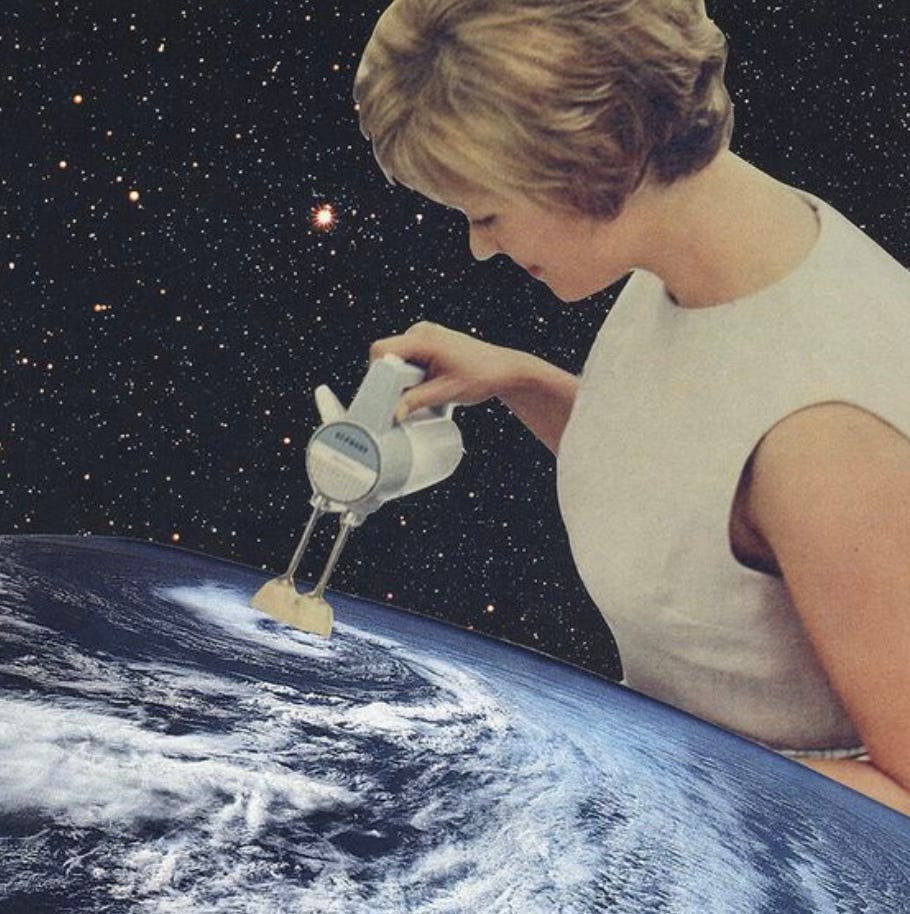Should I be having kids in a collapsing world? And other things that count now
How do we prioritise all the things? Chapter 16 continues...
This is Part 2 of Chapter 16 and it brings together what we need to be *doing* now to try to save, heal, guide, lead, mentor…and survive. It builds on what we’ve covered already and also covers the “kids” question…
If you’re new here you can start at the beginning of the book and navigate around the previous chapters using this Table of Contents. The audio version for both Part 1 and Part 2 (today’s post) is at the bottom, available only to paid subscribers. Ditto the conversation in the comments section where we workshop things together in real time.
<Previous Chapter | Table of Contents | Next Chapter>
“When we try to pick out anything by itself, we find it hitched to everything else in the universe.”
- John Muir
*
Writing notes: This chunk draws together ideas we’ve covered already. I’ll put link-backs in the text. In a “real book” this is not necessary because all the content exists bound in a neat package. The complete journey can be held in the readers’ hands.
Another alert: I don’t like when polemic-style books get bogged down in “activities to do now” sections (especially if the typesetters run big ugly boxes around them!). However, this topic BEGS a few ideas for living in and through such a shift in circumstances. And so sometimes I will provide a quick, not-too-detailed, suggestive lists of thought-starters. I did this with the Simplify chapter and will do the same here.
Given my slight frustration with didactic lists, I will have to ask all of you to contribute your ideas, if you’re up for it. I’m not so happy with this chapter, if I’m to be honest. And it might need a sprinkling of fairy dust via the brains trust! Please add yours in the comments.
*
Everything looks different to me now. The boundary lines, the goalposts, and even the fundamental rules of the game have shifted. And, somehow, I find myself enlivened by it.
As I go deeper into what really is a spiritual reckoning with The Truth Of Everything That Is, I’m tapping into a particular frequency. Everything around me and within me seems to be buzzing in alignment with a force that is bigger and that feels less like that desperate efforting I’d been doing and more like a… magnificence.
I choose the word magnificence carefully. I’m trying to capture the vastness and original brilliance of existence that I’d only previously “known” at a cerebral level, or touched oh-so-briefly via those spiritual practices. Now I feel it. I feel I’m in it.
It’s not a cosy feeling. It’s not comfortable. It’s quite overwhelming and it’s demanding from me a “rising into” - a rising into a calm, noble duty. Which might be to say, it’s demanding that I leave behind my tediously neurotic project of attending to my ego on the daily, and to instead meet life where I’m needed.
It feels as though this is precisely why you and I have been born into this time.
*
Some of you might be feeling a bit fence-teeter-y about what I’m enthusing over. So here’s something to chew on while you read the rest of this section.
Studies have shown that when humans are faced with absurdity (you know, such as living in end times) and are struggling to find meaning, rising into duty and commitment can sustain us.
You might be familiar with that study from about 40 years ago that compares the happiness levels of lottery winners and accident victims? It found that the victims, all of whom were left paraplegic or quadriplegic, rated themselves as above average in happiness. The lottery winners on the other hand were no happier than the control group that was inserted into the study, and they rated the pleasure of mundane events of everyday life - dumb jokes, having breakfast -significantly lower than controls. The study introduced the idea of “hedonic adaption” (and the hedonic treadmill) to the world - that humans quickly return to a happiness (or sadness) set point, no matter the major (positive or negative) events in their lives. It concluded happiness can’t be relied on as a measure of our life’s meaning.
Now what is lesser known is that one of the scientists who conducted the study went on to find1 that the one thing that we can rely on to give our life meaning is our commitments. He argued our commitments - what we do out of an elevating sense of duty - don‘t always give pleasure. But that’s somewhat the point. The more we sacrifice for something, the more value we assign to it.
I know this to be very true in my life, even before “all of this”, if that counts for anything.
*
Ok, so if we’re going to rise into fired-up, committed duty, let’s get focused on the most effective, prioritised things we can do. None of us has to do all these things at once. We do what we feel we were plonked here on the planet to contribute. We start where we are. And we do it anyway, no matter what the prognosis from the theorists, doomists, tech bros and podcasters.





